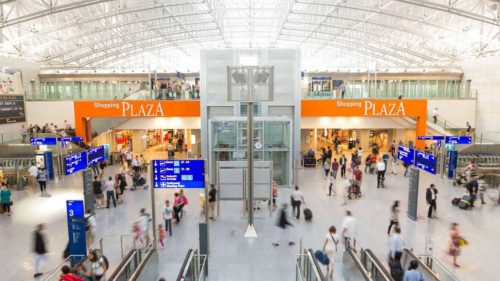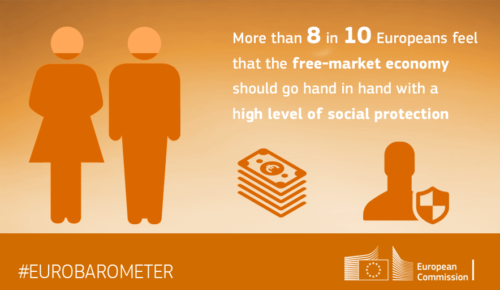Better Late Than Never
The first EU Social Summit in 20 years

I was wandering around Frankfurt Airport, waiting for my flight. I suddenly saw a bag. It was pure awesomeness. Love at first sight. 209 euros. I couldn’t really complain about my wage, I was earning twice as much as the national average in my home country and 1,5 times more than my mother being a teacher for 30 years. I could have bought the bag and kept eating or paying my bills that month. But still, something deep inside prevented me to do so. It was so insane. You just can’t buy a bag for 209 euros when a huge bulk of people earn 300 in your county. 27 years after the change of regime and 12 years after EU accession, me, a pro-European-minded middle-class intellectual took the plane heading home to Eastern Europe in a deep existential crisis and slight jealousy for the lucky girls in Western Europe.
“It is not the consciousness of men that determines their existence, but their social existence that determines their consciousness.” I know, it’s not that sexy to quote Karl Marx, but still, I believe he had a deep understating about how people’s minds work. If you feel deprived and have to constantly struggle to make ends meet at the end of the month, you won’t really burn for any ideology, idea or cult. It is true for the EU as well. Because the idea of sharing the same history, culture and values is definitely heart-melting and fascinating. Especially for us, who are sitting in our warm and stylish offices from 9 to 6 and then go to share our commitment towards the European integration and beer on Plux. But for construction workers fighting weather and fatigue for 300 euros, I don’t think that the Ode of Joy or the House of European History would truly ring a bell.
Populists can also take advantage of this completely reasonable approach. For example, the once-far-right and now-center-approaching Hungarian political party Jobbik has announced recently a campaign on “wage union”. They claim that they would raise the wages to the Western European level, so that everyone could stay in their home country. And in the wave of rising nationalism and xenophobia, people do tend to believe them. Even though French President Emmanuel Macron is far from being a classic populist, when he talks about foreign workers providing services in France, just to distract the attention from his unpopular labor market reforms, he subscribes to the same logic.
They argue upon a completely distorted logic, though. It is indeed useful for everyone to spend some time abroad and learn new things. By the way, craftsmen travelled all around Europe looking for an apprenticeship in the Middle Age. When they learned the profession, they went home and opened their own atelier as masters. One doesn’t need a permanent contract at the Commission to see the advantages for the host and for the sending country as well.
But people’s attention should be drawn in a smart way to the fact that we indeed have the EU, where it is all possible. Not to mention that we also have the Eurozone that helps the convergence of wages and therefore social standards. Yes, it is true that it doesn’t and will never fulfill the criteria of Robert Mundell’s Optimum Currency Area (OCA). European people (and humans in general) are not completely mobile so they could just leave their country in case of an economic shock and go to work abroad. They have family ties and language barriers. And even if they don’t have them, the German work market couldn’t absorb half of the Greek population. It is not a graph in the Handbook of Macroeconomics for first-year university students. But as the OCA model suggest, the central authority (aka. the EU) has other options to foster convergence and economic growth.

The wonderful news of the day is that it’s happening right now in Gothenburg at the EU’s first Social Summit in 20 years. Obviously, one can ironically call the EU’s social pillar Commission President Jean-Claude Juncker’s pet project and cite hundreds of graphs about the differences between European social systems and labor markets. But guys, something is finally happening!
We can write one more study about the problems of EU’s democratic legitimacy in a suit-and-tie fashion, and then have drink with our like-minded buddies. But it will not give the European people the perception that the EU is doing something for their well-being. I don’t even claim that this summit will bring any breakthrough. But at least, decision-makers do something.
By the way, it is not that new at all. Jean Monnet’s original idea was also based on the integration’s output legitimacy, namely that it provides well-being and security for ordinary people. The functional logic has always worked. This time, it only needs to be well communicated to the people, so that they would believe again in Europe, rather than in populists.
